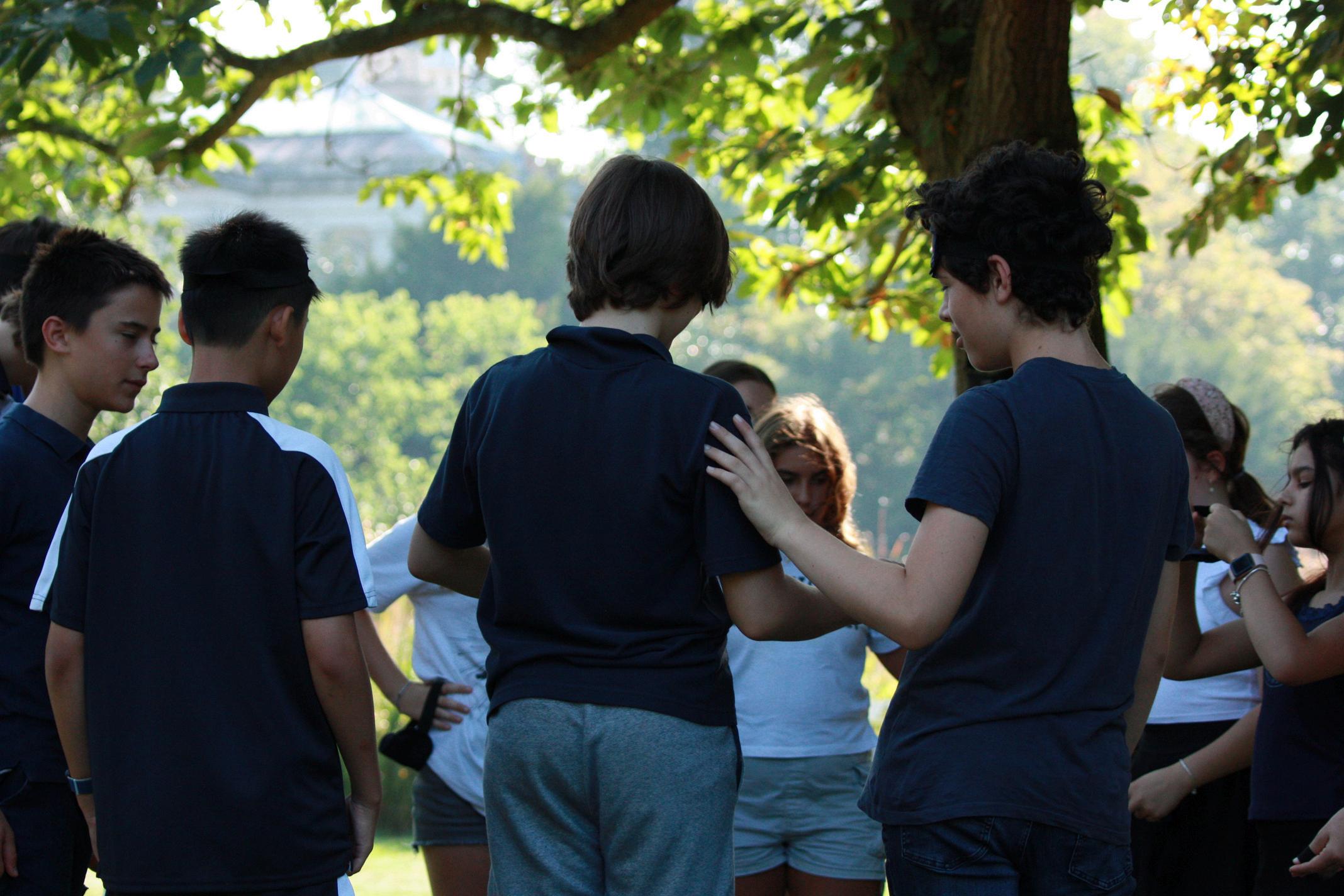
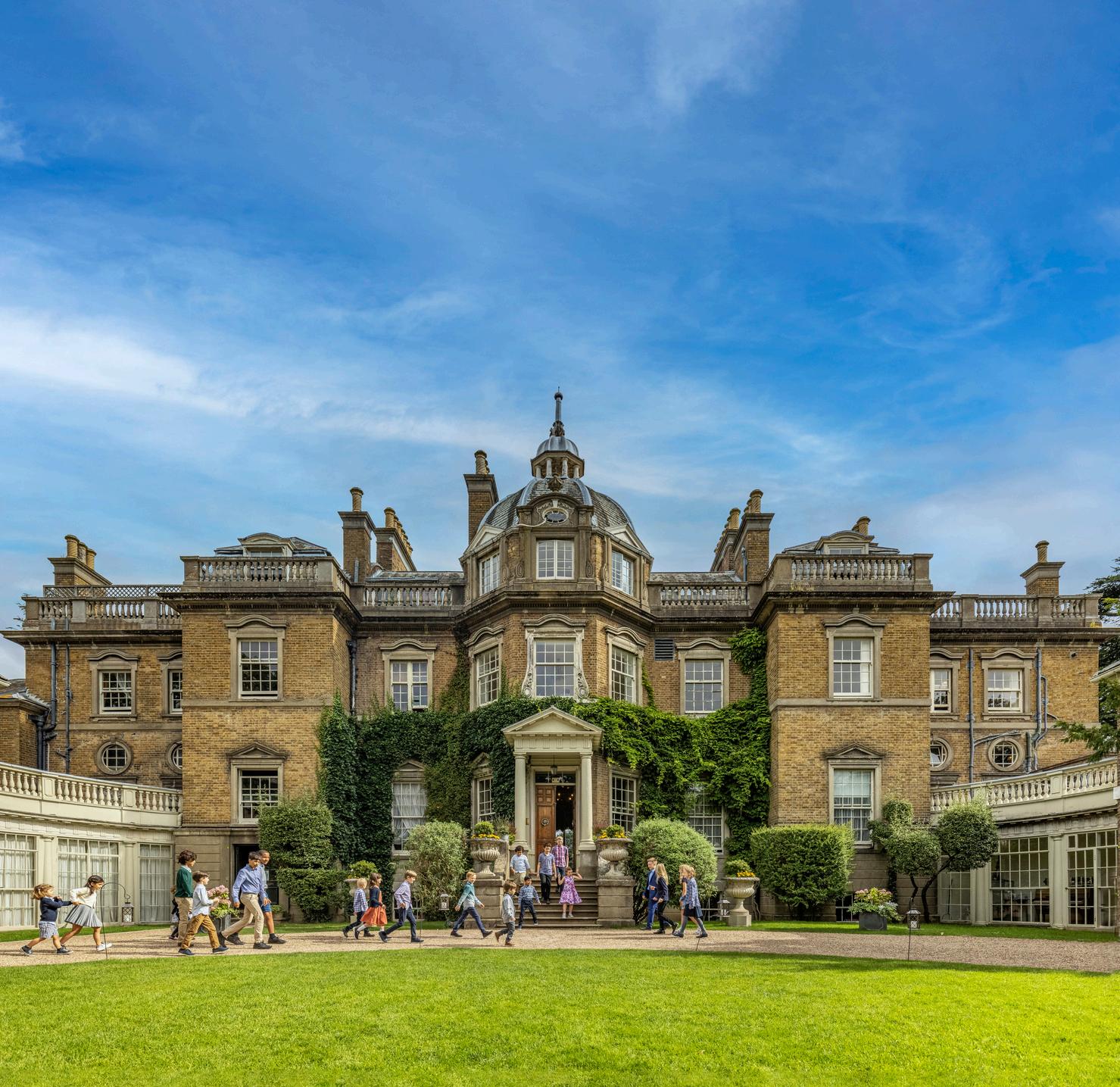
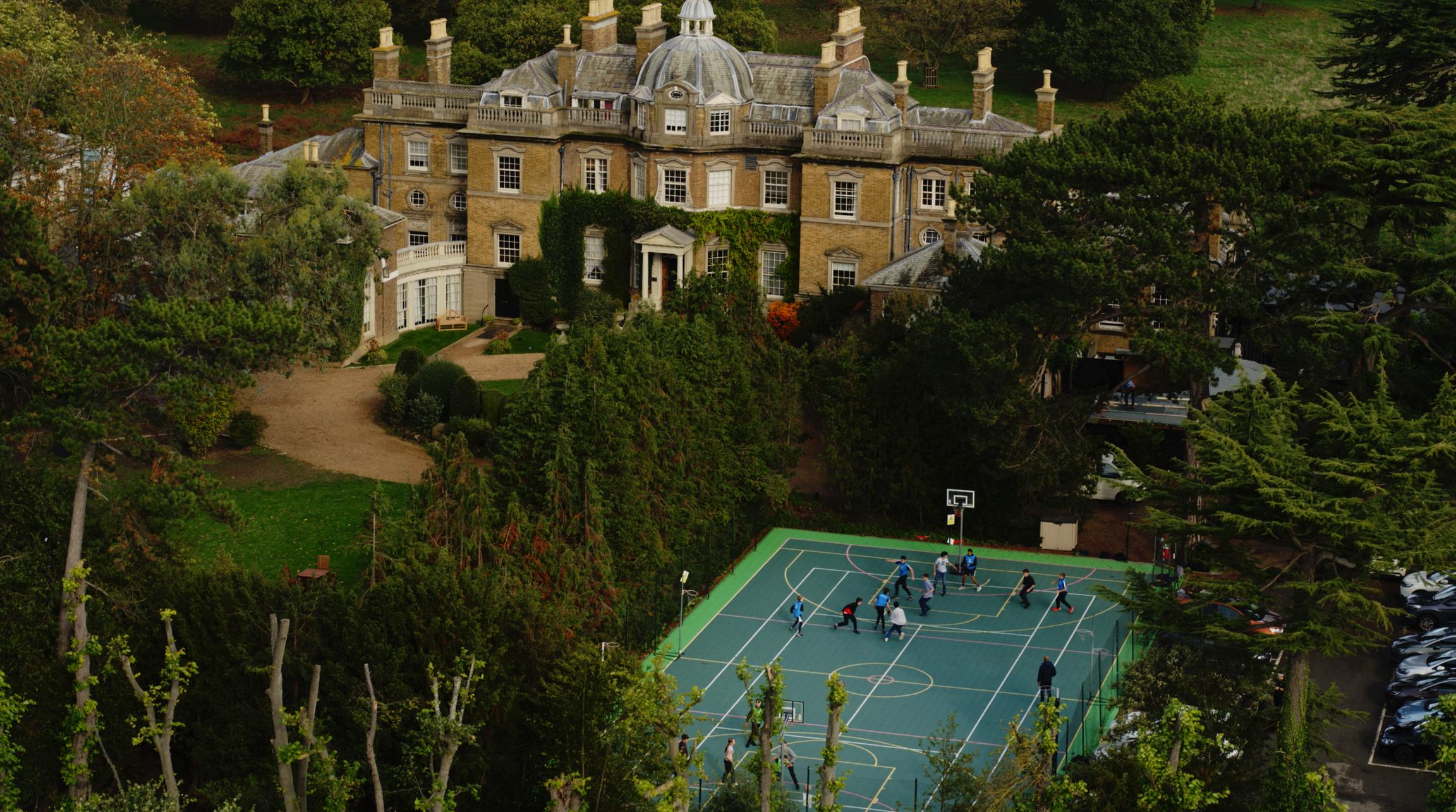

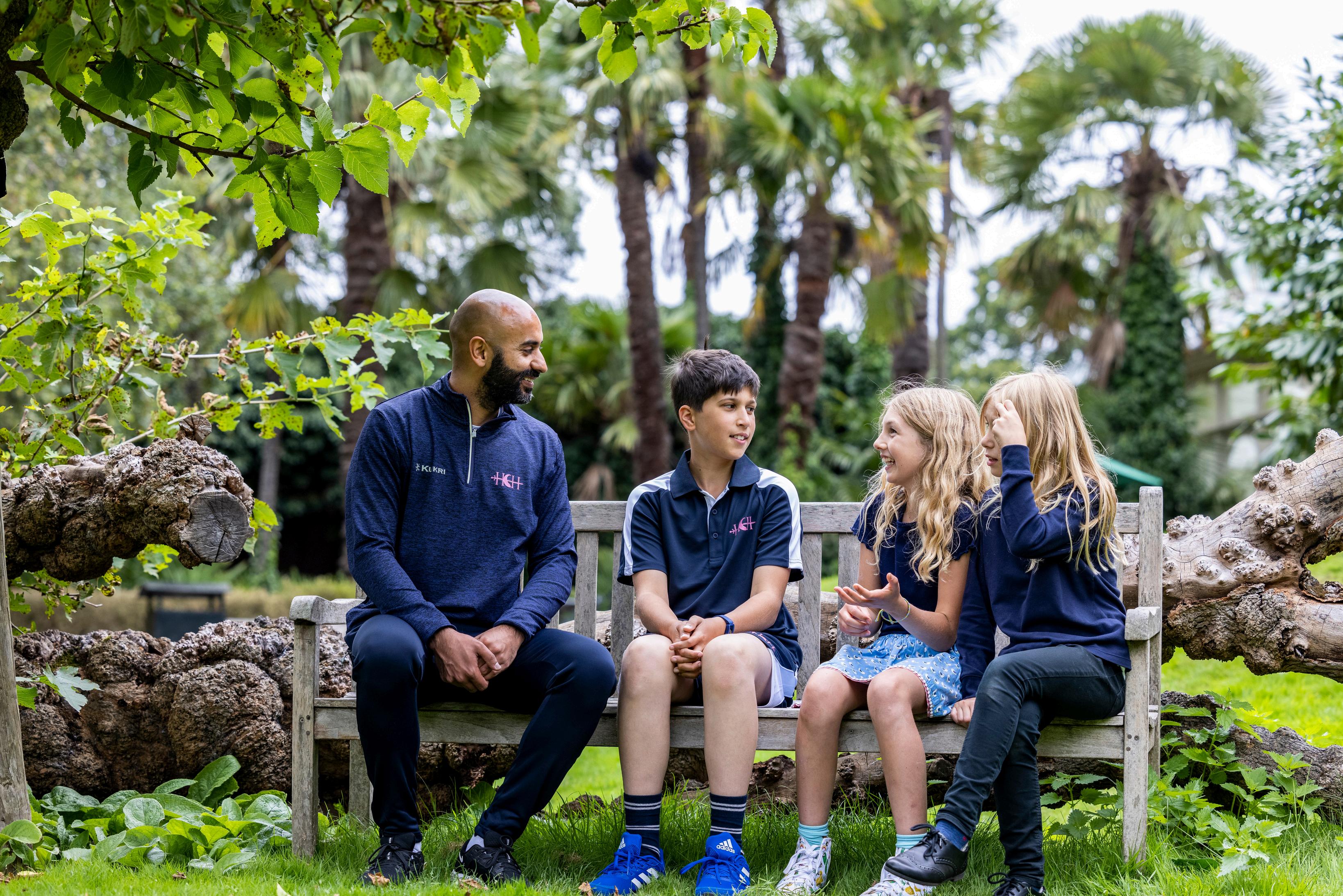









In the first half of term Y7 will learn methods to create the illusion of 3D space on a 2D surface. From the use of scale and position to more complex constructed perspective methods, they will gain the skills to create space and drama in their own work. Then in the second half of term the students will be introduced to basic colour theory, subtractive mixing and glazing. They will use this knowledge to create vibrant lino prints.
Student work is assessed during the lessons with practical help offered when necessary. Understanding is assessed gradually because students need to build on their previous knowledge, and quick challenges are introduced to check this. Students are also encouraged to self-assess through refining their own work and reflecting on each other's. Their memory and understanding of processes are assessed through write ups which they are asked to document in their sketchbooks at the end of each project.
Term
Autumn 1
Autumn 2
Spring 1
What are we studying?
One-point, two-point and three-point geometric perspective drawing.
Introduction to colour theory
Mixing glazes and direct mixtures. Using specific colour terms correctly Making lino prints as a vehicle to explore their understanding of the appearance of colours.
Two-layer lino print.
Block 1. creating a visually balanced black and white design
Block 2. creating a colour gradient block Combining the two accurately This project varies in length depending on the group.
Spring 2 Continuation

Term
Summer 1
Year 7 Curriculum Overview
What are we studying?
A 3D project.
Either:
a wire and Modroc insect project, based on French sculptor Edouard Martinet’s work or kinetic sculpture based on the wire mobiles of Alexander Calder.
The students learn to use tools and structural materials, and with the mobile project they employ basic principles of physics learning to manipulate mass and length to achieve a delicately balanced structure.
Sometimes the students get a chance to work as part of a team contributing to drama productions.
Summer 2 Continuation
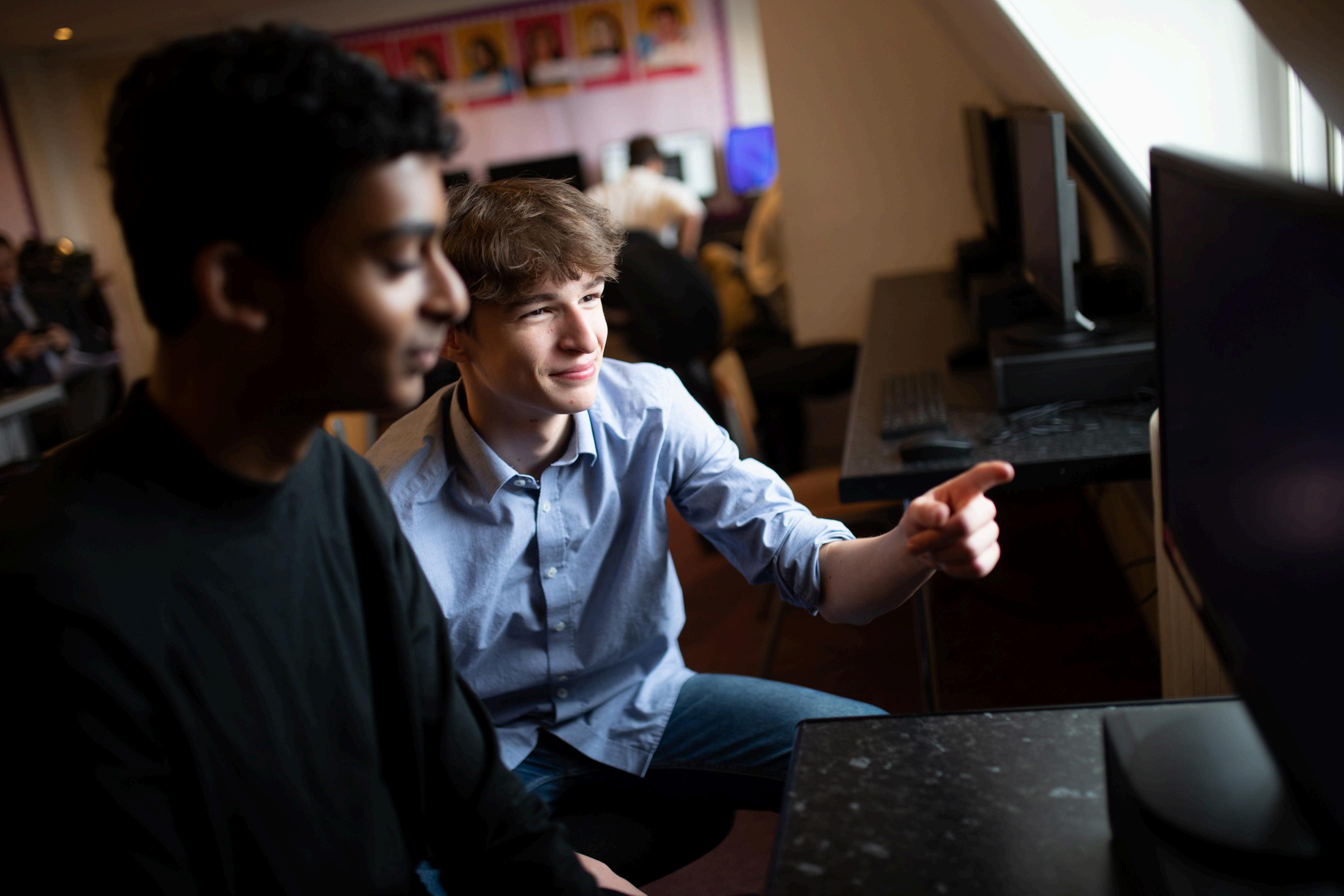

The syllabus in Year 7 includes materials and concepts recommended by the National Centre for Computing Education for Key Stage 3, as well as topics and resources from other established and respected educational organisations. The activities alternate each half-term between predominantly theory topics and then more practical applications. This ensures the students have hands-on experience of early programming concepts, as well as building an understanding of the wide scope and complexity of the subject. In the theory periods, gamified learning will also be used to illustrate and embellish the topics to maintain student engagement, and in the more practical sessions, students will be required to maintain a log of their activities, which will form part of their assessment. The first term is intended to provide a smooth transition from prep; after Christmas, learning will become increasingly formal with more emphasis on recording and recalling taught content.
How it will be assessed
Throughout each term, low stakes testing will check on the student’s progress. Each half term there will be a mini test on the topics covered that half term. These will take place online during normal lessons. At the end of the year there will be an end of year exam covering all the topics from the whole year. This will be during the school’s assessment week. Throughout the year, each student’s written work - completed entirely in Teams/Class Notebook – will be considered in the assessment of their progress.
Term
Autumn 1
Autumn 2
What are we studying?
Using computers safely: After the set-up of students on the school systems, the first few weeks will cover passwords, MS applications, social networking, data safety, email use, online information searches, and interpreting search results and AI responses. Interspersed with these topics, we will be solving algorithmic puzzles online.
As half-term approaches and passes, classes will start looking more closely at algorithms using BBC Microbits, and examining the concepts of input – process - output, including sensors and devices.
Spring 1 In the new year students will be studying what a computer is: hardware and software, processing, CPU and other components, memory, binary, storage.
Spring 2 In the second half of the spring term, classes will be learning HTML and CSS, and creating a website. We will also look at internet search.
Summer 1 After Easter, students will study networks, the internet and the World Wide Web.
Summer 2 As half term approaches and passes, students will start programming using Edublocks with Python in the back-end.
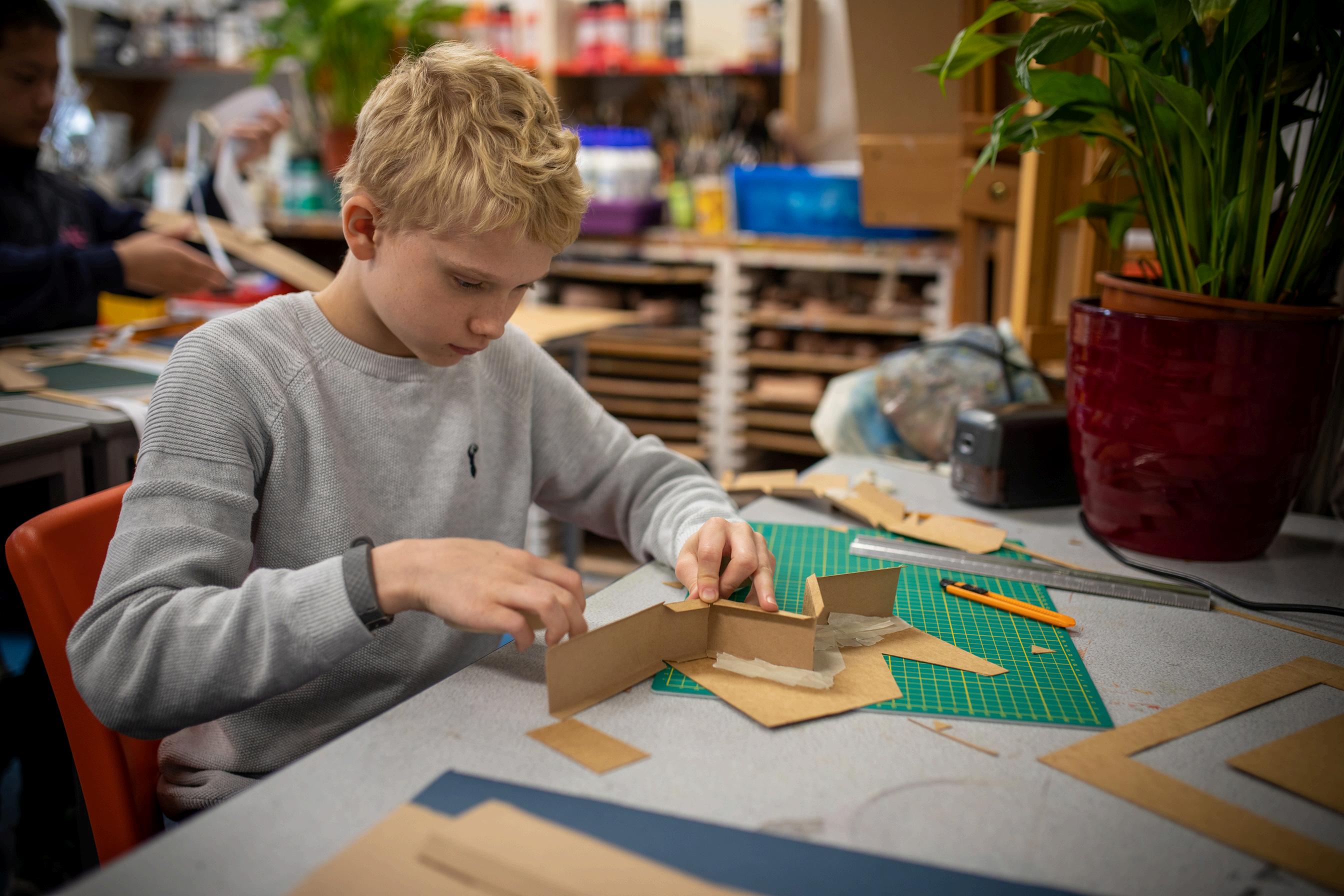

Autumn 1
Spring 1
Core technical principles:
· New and emerging technologies
· Energy generation and storage
· Developments in new materials
Autumn 2
Summer 1
Specialist technical principles:
· Forces and stresses
· Ecological and social footprint
· Selection of materials and components
Designing and making principles:
· Investigation, primary and secondary data
· Environmental, social and economic challenges
· The work of others
· Design strategies
· Communication of design ideas
Spring 2
Core technical principles:
· Systems approach when designing
· Mechanical devices
· Materials and their working properties.
Specialist technical principles:
· Using and working with materials
· Surface treatments and finishes
· Specialist techniques and processes
Designing and making principles:
· Prototype development
· Material management
Summer 2
· Specialist tools and equipment
· Specialist techniques and processes
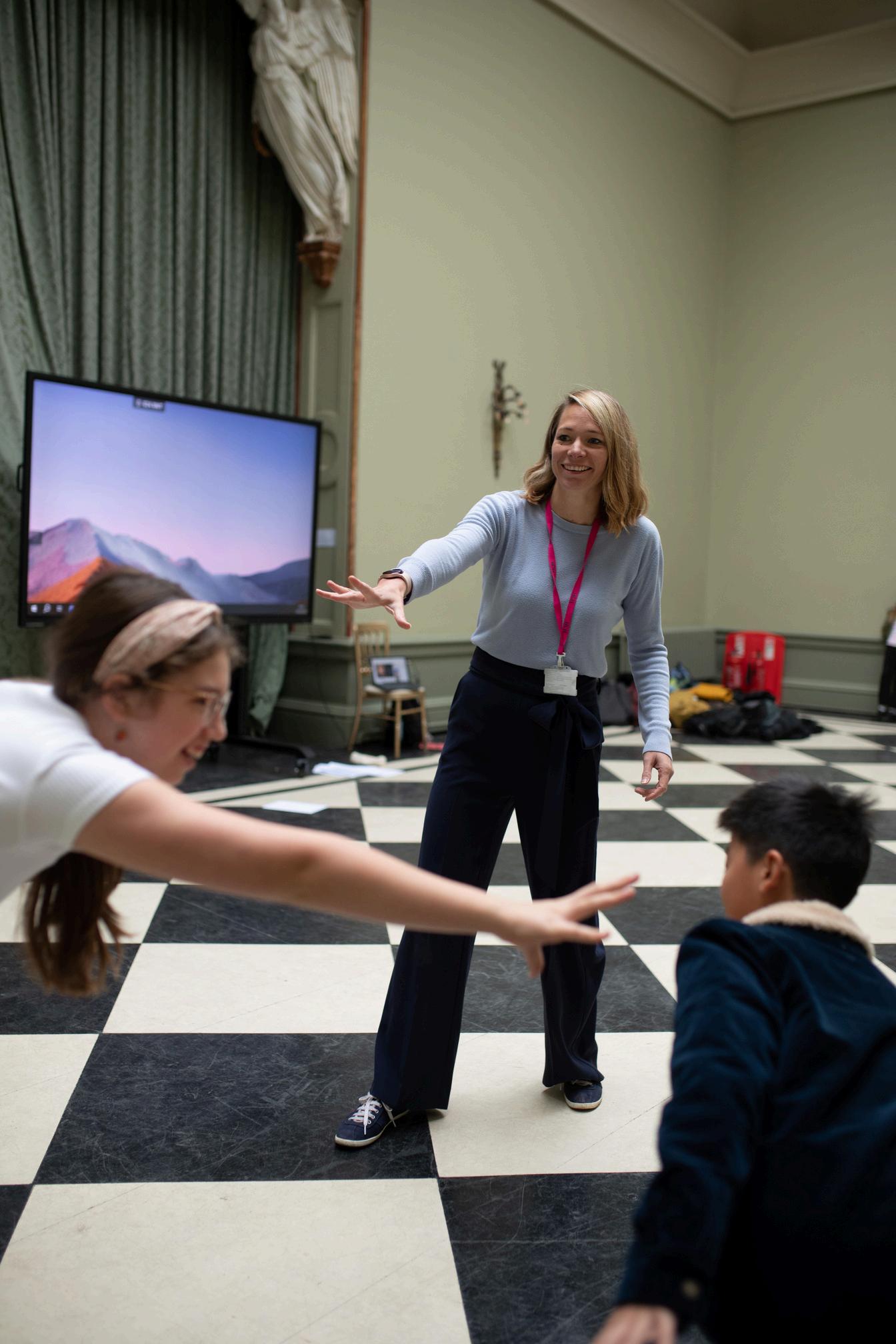

We will begin the year with an introduction to Drama. Students will learn about different theatrical spaces and start to learn keywords associated with their use of voice, physicality and stage space. Towards Christmas they will work on a short pantomime to show younger students.
How it will be assessed:
Rehearsal: Students are assessed on their creative ideas, which the teacher assesses through observations in class
Performance: Students are marked on performances and their ability to create and sustain a role
Autumn 1
Intro to Drama Stage space
Physical skills
Vocal skills
Devising 1: Techniques
Movement motifs
Spring 1
Autumn 2
Spring 2
Cross cutting
Mime and narration
Performing a play: Exploration
Summer 1
Understanding the plot of the play
Exploring themes
Developing characters
Summer 2
Pantomime
Bold characters
Audience Pantomime
Bold characters
Audience interaction
Retelling of fairy tales interaction
Retelling of fairy tales
Devising 2: Creating a play
Writing monologues
Considering structure
Developing work for an inclass performance
Performing a play: Performing Learning lines and blocking
Performing to a live audience
Creating characters

We begin Year 7 with John Steinbeck’s classic novel, The Pearl, to deepen students’ familiarity with literary analysis and give them valuable experience with a more mature text. This will lead into a unit of work based on the theme of ‘growing up ’ , using a range of fiction and non-fiction texts to inspire students’ own creative and imaginative writing Additionally, one lesson per week throughout the year will be set aside for free reading on our Library Bus with a class reader, and specific curriculum time dedicated to spelling, punctuation and grammar
How it will be assessed
Autumn 1 The Pearl: Students will write an analytical essay (minimum two paragraphs) in response to a question about a character To prepare for the assessment pupils will practise their analytical paragraph and essay writing skills throughout the term, in addition to a range of other broader skills in reading and writing
Autumn 2 Growing Up: Students will complete a comprehension task and then produce a piece of creative writing which will be marked on their content, organisation, and SPaG
Term
What are we studying?
Autumn 1 The Pearl by John Steinbeck
Autumn 2 Growing Up - fiction and non-fiction

continued
Term
Spring 1
Spring 2
Summer 1
Summer 2
What are we studying?
Freedom by Catherine Johnson
A creative writing unit that enables students to improve their own writing craft using figurative language
Students will read the novel in class, examining key description in detail
This novel also draws on key context of the transatlantic slave trade
Poetry from around the world
Students to study a range of poetry that exposes them to a myriad of different cultures including:
‘Blessing’ by Imtiaz Dharker
‘Night of the Scorpion’ by Nissim Ezekiel ‘Half-Caste’ by John Agard
‘Limbo’ by Edward Kamua Brathwaite ‘Nothing’s Changed’ by Tatamkhulu Afrika
Shakespeare’s London
Students to be introduced to Shakespeare; who he was; how he came to be the playwright he is today
Students will study a range of sources, practise their comprehension, as well as produce different types of transactional writing: articles, letters, etc
Shakespeare’s Heroes vs Villains
Students will study a range of heroes and villains across Shakespeare’s works including:
Hamlet, Hamlet
Lady Macbeth, Macbeth
Juliet, Romeo and Juliet
Iago, Othello
Students will analyse monologues/soliloquies by thinking critically about the deeper meaning of Shakespeare’s language
Students will practise writing and performing monologues/soliloquies, both from Shakespeare’s works and their own writing

Year 7 are going to start discovering their new textbook, Tricolore 1. The Tricolore method has proven to be very efficient in KS3 for GCSE preparation. The students will start the year by introducing themselves, present their classroom and learn about simple classroom instructions. They will then learn to talk about their family, home, pets have a little introduction to poetry in French.
How it will be assessed:
The four skills (reading, writing, listening and speaking) will be alternatively assessed There will be a test at the end of each unit for all the skills except speaking that will be carried out separately The speaking assessment usually takes place when the teacher feels the students confident enough. Vocabulary tests will be done on a regular basis.
Term
Autumn 1
Autumn 2
What are we studying?
In Unit 1, the pupils will learn to greet and say goodbye to a French speaking person, they will learn how to tell someone their name and age, they will learn to ask someone how they are and tell them how they are themselves, they will learn to talk about school items and things in the classroom, they will also work on simple classroom instructions
In Unit 2, we will focus on understanding people saying where they live, say where you live and ask someone where they live, the students will learn the days of the week and use the French alphabet In Unit 3, the pupils will learn to talk about their family and home, talk about other people’s homes and families, say who things belong to, describe where things are in a room, read a poem in French

continued
Term
Spring 1
Spring 2
Summer 1
Summer 2
What are we studying?
In unit 3, we will learn to talk about our family, say which things belong to us, discuss our family and friends, talk about our homes and describe where things are in a room
In unit 4, we will learn about pets, use adjectives to describe things, learn how to ask questions and express opinions, understand and practise descriptions and use some everyday phrases
In unit 5, we will learn how to ask for and give the date, learn about saints’ days and other festivals, find out about festivals and celebrations in France, learn about the correct greetings for special dates, talk about a fancy dress party, talk about birthday dates and presents, talk about clothes, describe ourselves and others and we will develop and practise our listening skills
In Unit 6, we will talk about the weather forecast, sports and leisure activities Students will learn how to present the weather forecast and talk about months and seasons We will discover the main leisure and sport activities with the verb “jouer”
In unit 7, we will learn about a town in France, as well as some vocabulary about the town, understand and give information about a town, ask for and understand directions in town, discuss possible activities in town, talk about the area we live in, make plans and talk about where we are going and understand tourist information



We start year 7 geography in autumn 1 with students honing their foundational map skills by giving them the opportunity to interact with a wide range of maps, practicing using scale bars to identify distances, using six figure grid references and using contour and spot heights to calculate elevation whilst understanding a wide range of map symbology This unit will culminate in an assessment where students have to use all the cartographic skills to interpret a series of maps and graphical information Moving into autumn 2, students will begin our second topic and be starting their ten week investigation into the UK’s weather and climate”. Their first opportunity to explore physical geography, the students will start by finding out the difference between weather and climate, understand fundamental controls of the UK’s climate such as the Gulf Stream before moving to interpreting and analysing a range of climate graphs in order to make their own predictions They will also be able to conduct their own investigation into the weather of Hampton Court using a range of equipment
How it will be assessed:
Autumn 1: assessment for map skills will be a ‘halfway map skills check’ multiple choice test and a route planning task at the end of the unit of work
Autumn 2: assessment will be via a short, peer reviewed analysis of a climate graph interpreting patterns before a final assessment in the form of a piece of extended writing after the completion of their own investigation, and a final examination at the end of the unit of work

continued
Term
Autumn 1
Autumn 2 and Spring 1
Spring 2
Geographical Map Skills
Summer
What are we studying?
Understanding and using OS maps, symbols, and grid references
Interpreting scale, distance, and direction
Using atlases and digital mapping tools
Developing skills in map drawing and annotation
Weather and Climate
Distinguishing between weather and climate
Measuring and recording weather using instruments
Understanding factors affecting the UK’s climate
Interpreting weather maps and forecasts
Tourism (Destination UK)
Exploring different types and impacts of tourism
Case study: Tourism in a UK or global destination
Investigating sustainable tourism practices
Examining the role of tourism in economic development
Local Enquiry Project
Local field study investigation on ‘impacts of tourism on the Hampton Court area’.
A first look at geographical enquiry within the context of our surrounding area:
Studies will get to carry out data collection to help answer the overall enquiry question
Practice drawing conclusions based on data and link this to previous knowledge of both tourism from the spring 1 and 2 units of work

Students will be exploring British, European and world history, c 1000-c 1500 Within each of the broad topics listed below, students will investigate a series of enquiry questions, written to pique their interest in the past and provide them a problem to wrestle with, just as historians do
Students will complete in-class assessments, including essay writing, source analysis, knowledge tests, and creative challenges Essay writing will challenge students to communicate arguments about historical concepts, such as causes or change and continuity Source analysis will challenge students to critically evaluate materials from the past, explaining what we can learn from those materials and why they are valuable Knowledge tests are intended to teach students the important skill of revising content, so they are well prepared in techniques that will serve them through to A Level should they wish to pursue it! Creative challenges are designed to push students to represent their historical knowledge and understanding in a way that mimics the application of history in the world today Assessments will take place each half-term, giving students opportunities to learn, apply, reflect and then practise again at regular intervals

Term
Autumn 1
Autumn 2
Spring 1
Spring 2
Summer 1
Summer 2
What are we studying?
The Big Story of the Medieval Period, 1000-1500 Assessment: How can we improve Ian Mortimer’s Time Traveller’s Guide to the Middle Ages
Rulers in focus: The Normans Assessment: ‘Arrogant, warlike and very pleased with themselves’: What were the Normans really like? How far do you agree with Morris?
Medieval Beliefs & Power Assessment: Substantive knowledge test
Medieval Ordinary Lives Assessment: Substantive knowledge test
Assessment: Create and explain a textbook on the golden age in medieval Africa focusing on the Mali Empire History, continued
Diversity: ‘Medieval Outsiders’ Assessment: Create and explain a museum exhibition to commemorate outsiders in medieval Britain
World Study: Medieval Africa


Iwe will cover the language and stories following the ISEB Latin KS2/3 syllabus from Nick Oulton’s Latin prep 1 with additional language material from Bob Bass’ Latin CE 1 Grammar Booklet The classes will have two lesson a week, with a focus on reading Latin and decoding the stories and mythology while building up a vocabulary knowledge to give them a foundation for English and other Romance languages they will go on to study There will also be lessons dedicated to exploring Roman culture through archaeological and sourcebased activities We also explore Greek and Roman Mythology looking at the Trojan War, The voyages of Odysseus and Theseus
How it will be assessed
There will be informal vocabulary quizzes as we reach a new chapter and to consolidate vocabulary at the end of a chapter
Term
Autumn 1
What are we studying?
So you really want to learn Latin 1 Chapter 1 and 2 Language Latin alphabet, punctuation and pronunciation word order and endings verbs: person endings present tense all conjugations nouns: declension, gender, case 1st and 2nd declensions
Culture and Mythology
The Labours of Hercules
The Trojan War
The Travels of Odysseus
The Vindolanda tablets and roman writing
Autumn 2
Latin Prep 1 Chapter 3 -4
Prepositions with the accusative the infinitive expressions of time vocabulary
Odysseus returns home
The Story of Niobe Roman Saturnalia
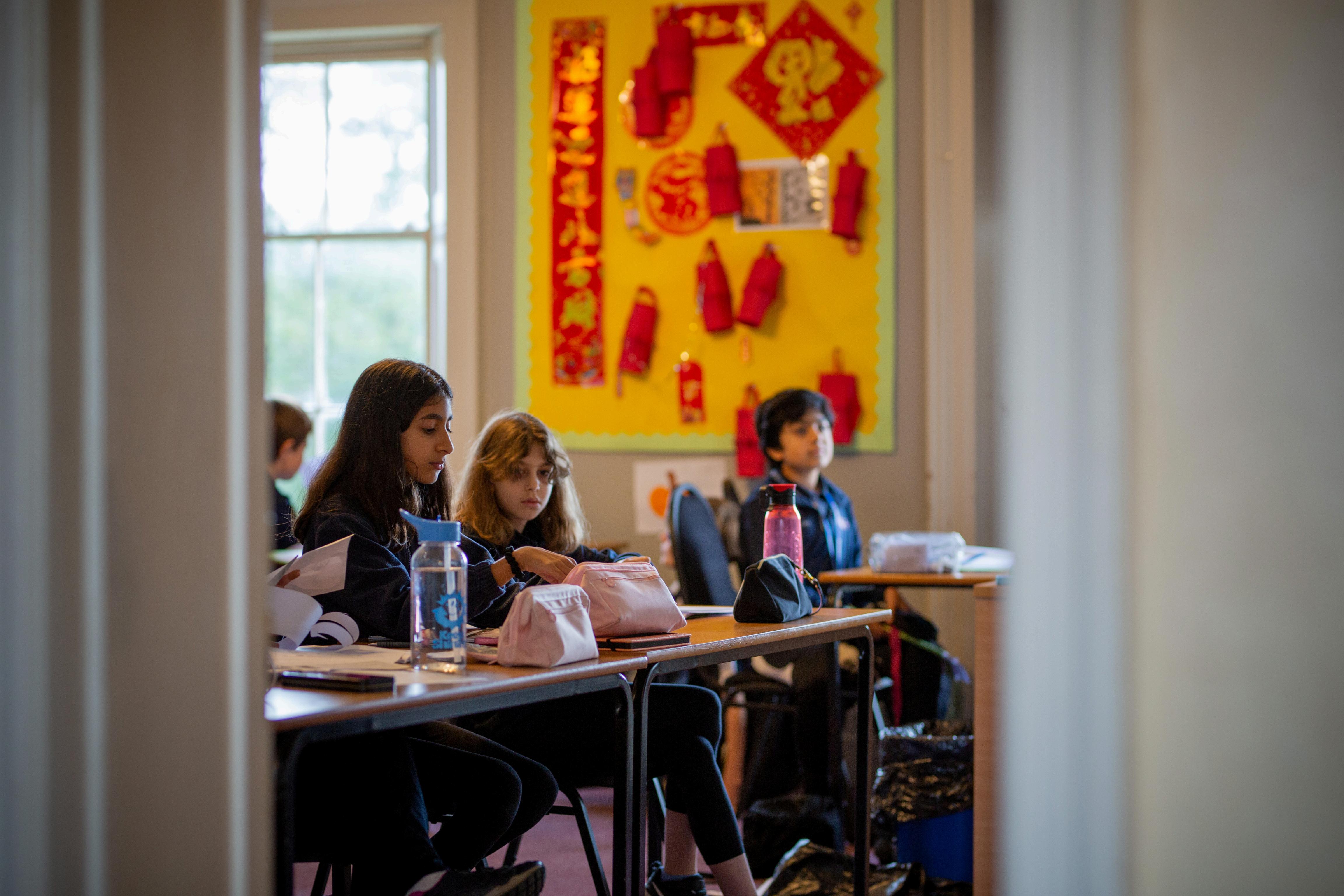

In the Autumn term, Year 7 students begin building a solid foundation in Mandarin Chinese, laying the groundwork for future GCSE study They will develop speaking, listening, reading, and writing skills in a balanced and integrated way, while learning basic pronunciation rules and the fundamental strokes used to write Chinese characters Students will begin working rigorously with the textbook Jinbu 1, starting with Chapter 1: ' 嗨 Hi,' where they will learn to count numbers, talk about age, and introduce themselves and others
The curriculum also includes cultural exploration, as students discover key facts about China and its traditions They will enjoy learning the legend of the Mid-Autumn Festival and create beautiful lanterns as part of this celebration In addition, students will be introduced to popular Chinese children's songs, making language learning both educational and enjoyable
How it will be assessed:
In addition to having a weekly vocabulary test, students will have an exam after each half term that will include listening, reading, translation, and writing exercises They will also have an oral exam to familiarize themselves with the format of the final exams
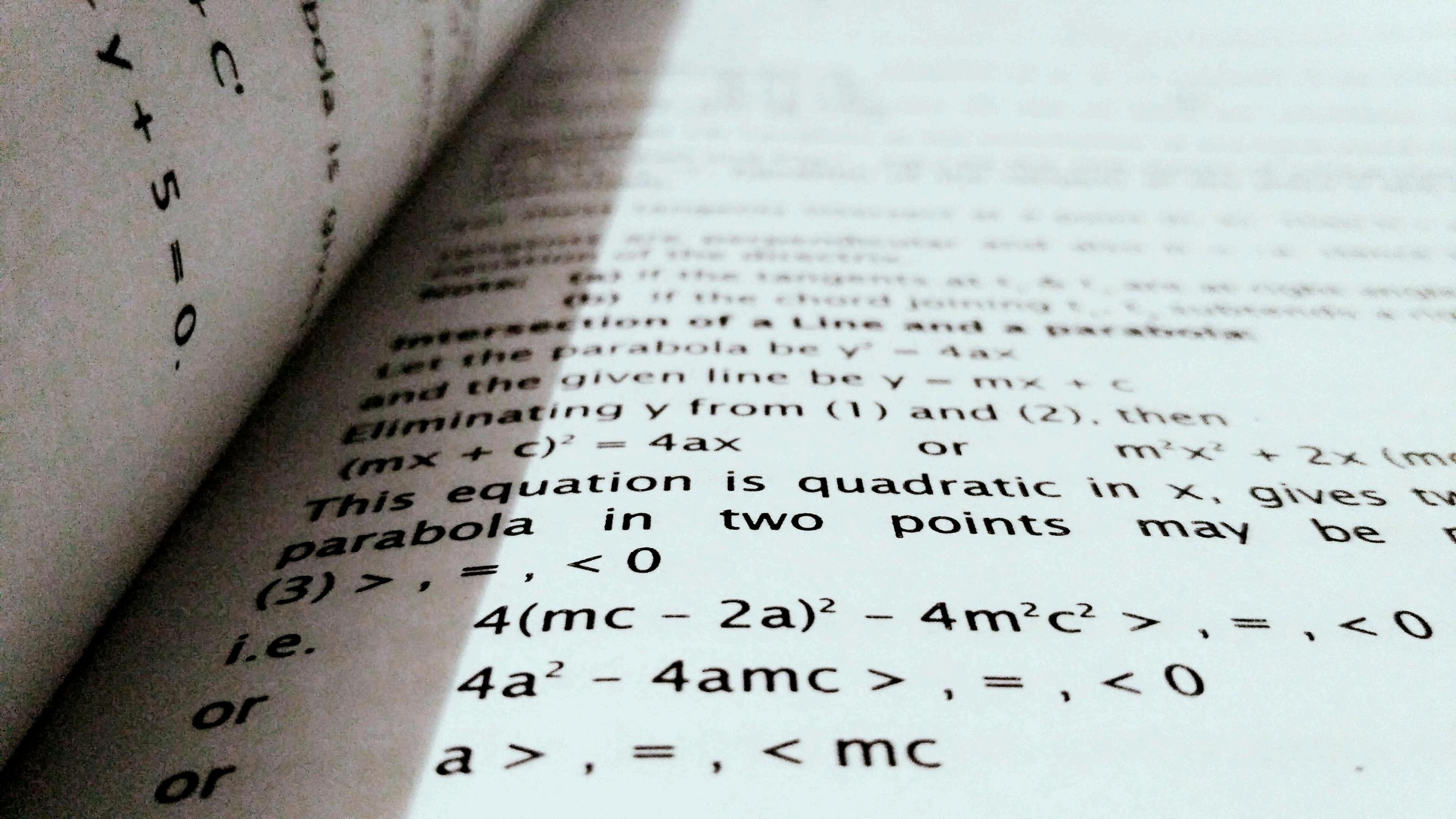

What are we studying?
Autumn 1 Number Sense, Fractions, Percentages, and Ratios
Spring 1 Area, Circles, and Coordinates
Summer 1 Angles, Transformations, and Linear Graphs
What are we studying?
Autumn 2 Indices, Expressions, and Equations
Spring 2 Surface Area and Volume, Standard form and Venn Diagrams
Summer 2 Algebraic fractions and Inequalities.
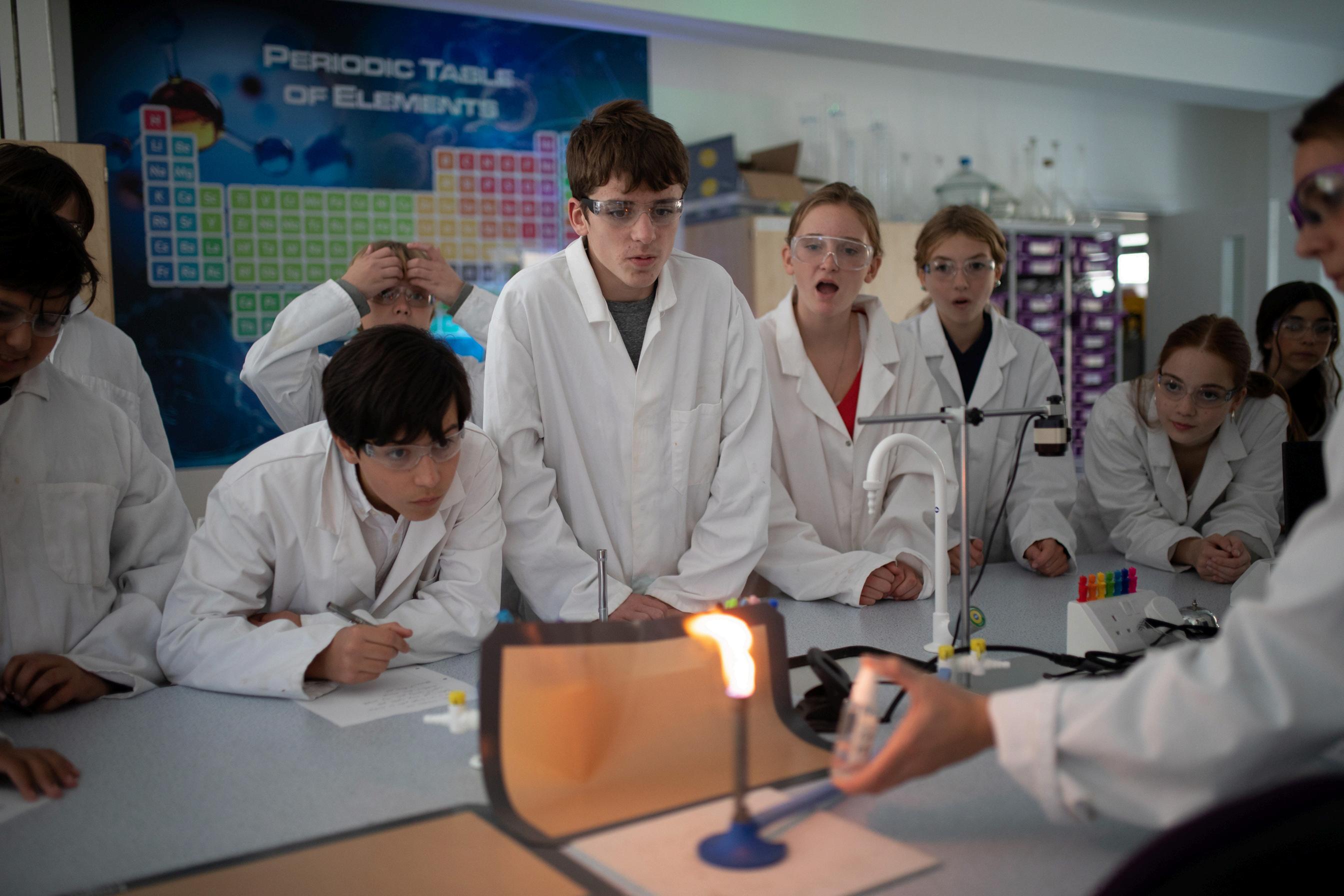

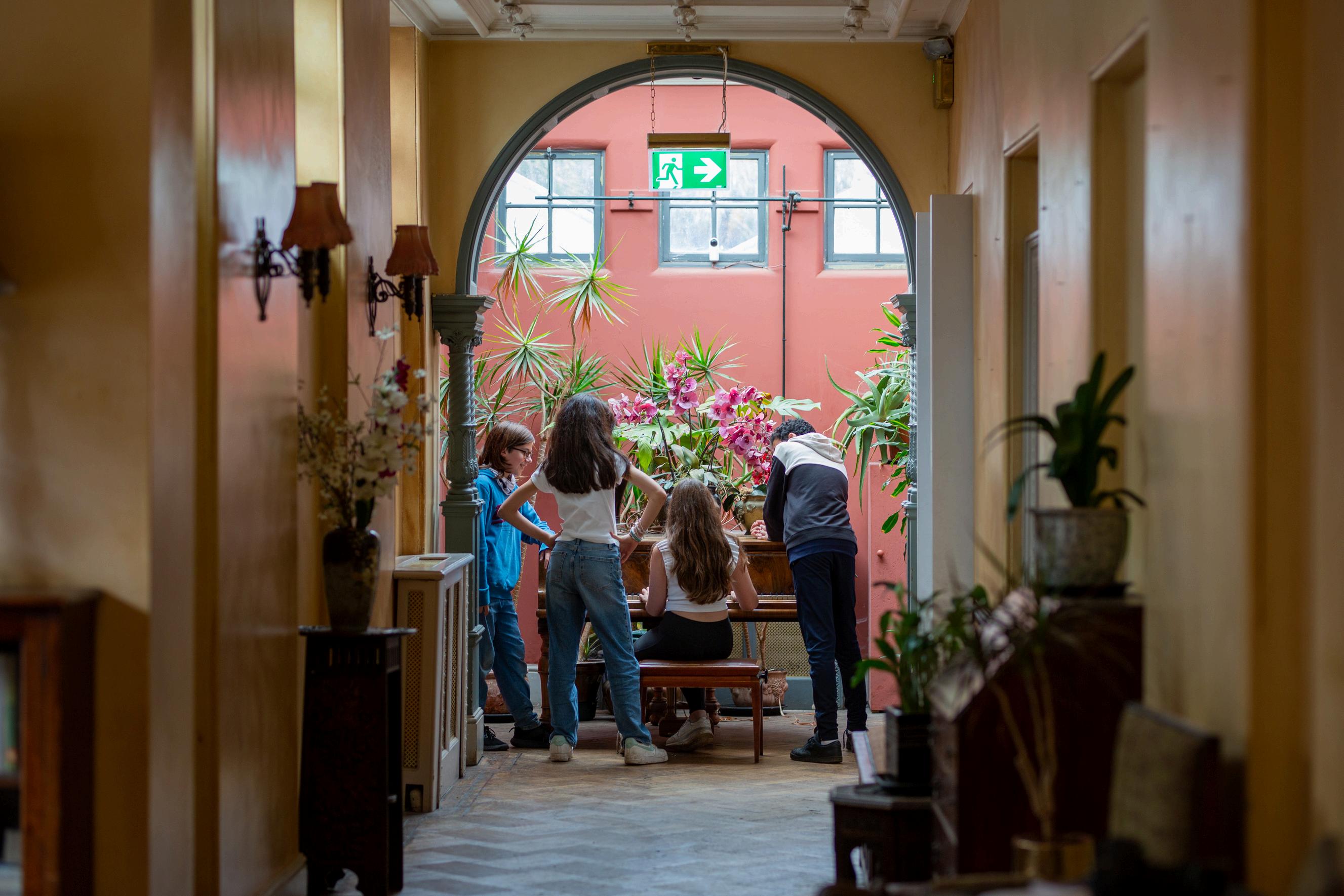

Through a practical programme which includes listening, composing and performing music, pupils will be introduced to the language of the ‘elements of music’ which is the foundation of their academic music learning. They will develop basic keyboard and notation skills.
Following this, students will explore the orchestra through time Pupils will explore the history of the orchestra and learn how to recognise different instruments aurally and visually. They will also further develop their keyboard skills by playing a short piece of music from the Classical repertoire.
How it will be assessed:
Compositions based on the elements of music
Ode to Joy keyboard assessment
Short aural and written assessment on basic rhythms, note names and identifying instruments
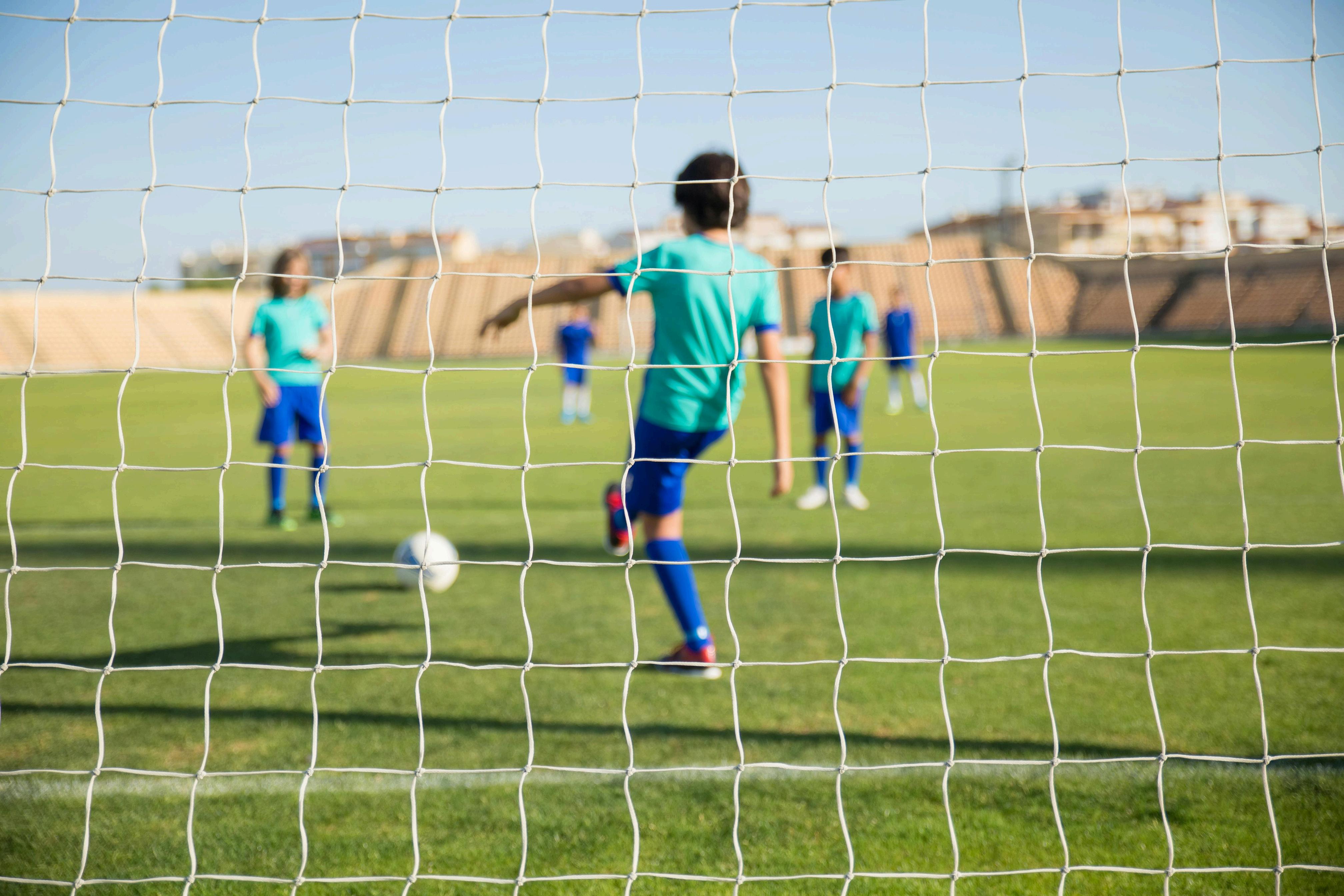

Y e a r s u m m a r y A u t u m n c o n t e n t

